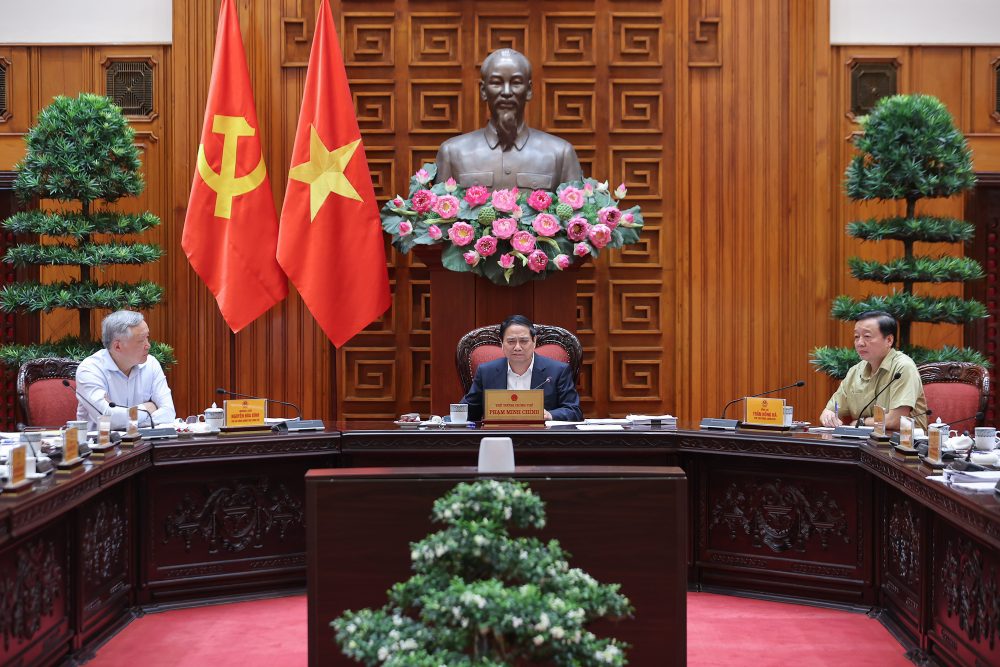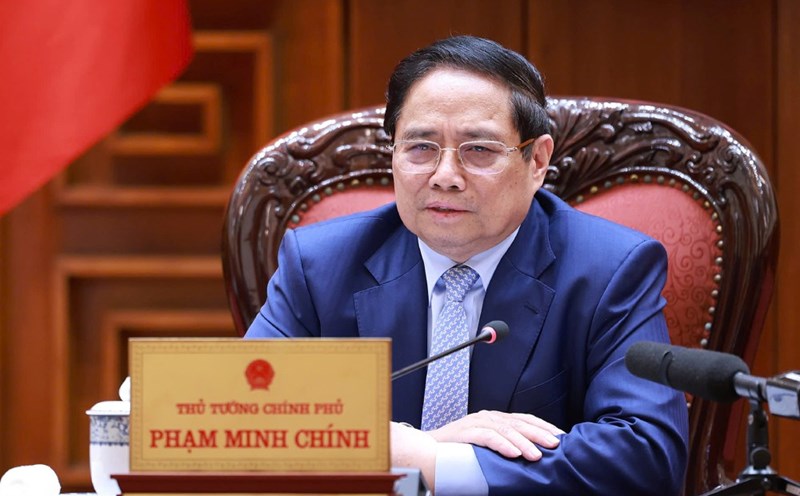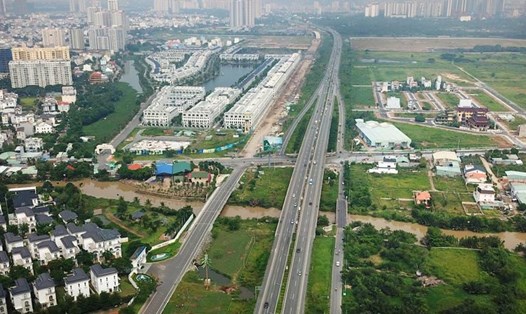On July 1, Politburo member, Secretary of the Government Party Committee, Prime Minister Pham Minh Chinh chaired a meeting of the Government Party Committee Standing Committee on a number of important contents, including plans to amend and supplement 3 important laws to prepare for reporting to competent authorities.
At the meeting, delegates discussed: Report on the assessment of 1 year of implementation of the 2024 Land Law and the plan to amend and supplement the Land Law; the plan to amend and supplement the Law on Geology and Minerals; the plan to amend and supplement the Planning Law.
Giving opinions on the plan to amend and supplement the Law on Planning, the Prime Minister stated that this is a content that the Politburo and the National Assembly are very interested in; at the same time, he suggested that this amendment must ensure the simultaneous handling of related problems and overlaps in the Law on Urban and Rural Planning.
Commenting on proposed revised policies, the Prime Minister supported the acceleration of decentralization and delegation of authority to ministries, branches and localities for sectoral planning and provincial planning.
Thereby, maximizing the effectiveness of national and regional planning, while creating conditions to maximize resources, different potentials, outstanding opportunities, and competitive advantages of sectors and localities.
Accordingly, the Central Government, the National Assembly, and the Government give opinions, develop and approve national and regional planning with strategic orientations.
Decentralization to ministers approving national sectoral planning and provincial People's Committees approving provincial planning, on the principle that sectoral planning and provincial planning must comply with, be consistent with and specifically national regional planning and planning.
At the same time, design tools and sanctions to strengthen supervision and inspection in the spirit of post-inspection instead of pre-inspection and collect opinions from relevant entities according to regulations; competent authorities will adjust sectoral planning and provincial planning if it is not in accordance with national planning and regional planning.

With the plan to amend and supplement laws in general, the Prime Minister emphasized the need to immediately remove obstacles and inadequacies caused by legal regulations.
The Prime Minister noted that it is necessary to further promote administrative reform, especially minimizing cumbersome administrative procedures, creating convenience, reducing inconvenience, reducing costs and compliance time for people and businesses.
Promote decentralization and delegation of power along with resource allocation, improve the implementation capacity of subordinates and strengthen inspection and supervision; strongly shift from "pre-inspection" to " post-inspection"; eliminate the thinking of "how much is managed, then open it", "if you can't manage, then ban", " don't know but still manage", "ask- give" mechanism.
The Prime Minister also requested to listen to the opinions of experts, scientists, businesses, and people; increase policy communication, especially communication in the process of law making and promulgation, creating widespread consensus.
The Prime Minister assigned the agencies to preside over receiving opinions, urgently completing the documents to submit to competent authorities for consideration, ensuring progress and quality.










